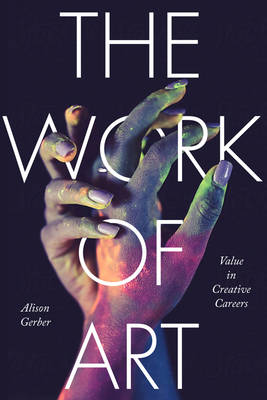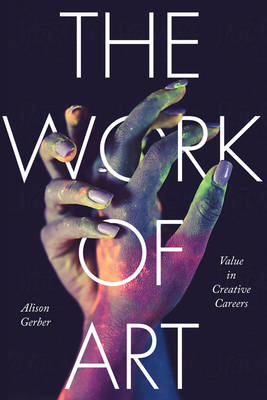
- Retrait gratuit dans votre magasin Club
- 7.000.000 titres dans notre catalogue
- Payer en toute sécurité
- Toujours un magasin près de chez vous
- Retrait gratuit dans votre magasin Club
- 7.000.0000 titres dans notre catalogue
- Payer en toute sécurité
- Toujours un magasin près de chez vous
Description
Artists are everywhere, from celebrities showing at MoMA to locals hoping for a spot on a café wall. They are photographed at gallery openings in New York and Los Angeles, hustle in fast-gentrifying cities, and, sometimes, make quiet lives in Midwestern monasteries. Some command armies of fabricators while others patiently teach schoolchildren how to finger-knit. All of these artists might well be shown in the same exhibition, the quality of work far more important than education or income in determining whether one counts as a "real" artist.
In The Work of Art, Alison Gerber explores these art worlds to investigate who artists are (and who they're not), why they do the things they do, and whether a sense of vocational calling and the need to make a living are as incompatible as we've been led to believe. Listening to the stories of artists from across the United States, Gerber finds patterns of agreements and disagreements shared by art-makers from all walks of life. For professionals and hobbyists alike, the alliance of love and money has become central to contemporary art-making, and danger awaits those who fail to strike a balance between the two.
The stories artists tell are just as much a part of artistic practice as putting brush to canvas or chisel to marble. By explaining the shared ways that artists account for their activities-the analogies they draw, the arguments they make-Gerber reveals the common bases of value artists point to when they say: what I do is worth doing. The Work of Art asks how we make sense of the things we do and shows why all this talk about value matters so much.
Spécifications
Parties prenantes
- Auteur(s) :
- Editeur:
Contenu
- Nombre de pages :
- 192
- Langue:
- Anglais
- Collection :
Caractéristiques
- EAN:
- 9780804798310
- Date de parution :
- 07-11-17
- Format:
- Livre relié
- Format numérique:
- Genaaid
- Dimensions :
- 145 mm x 213 mm
- Poids :
- 340 g

Les avis
Nous publions uniquement les avis qui respectent les conditions requises. Consultez nos conditions pour les avis.






